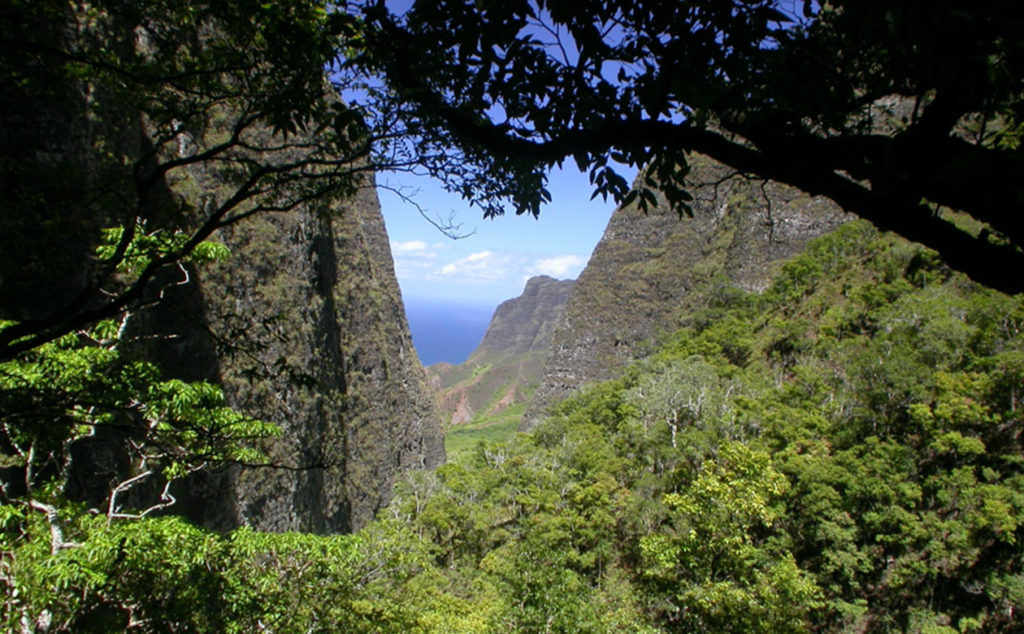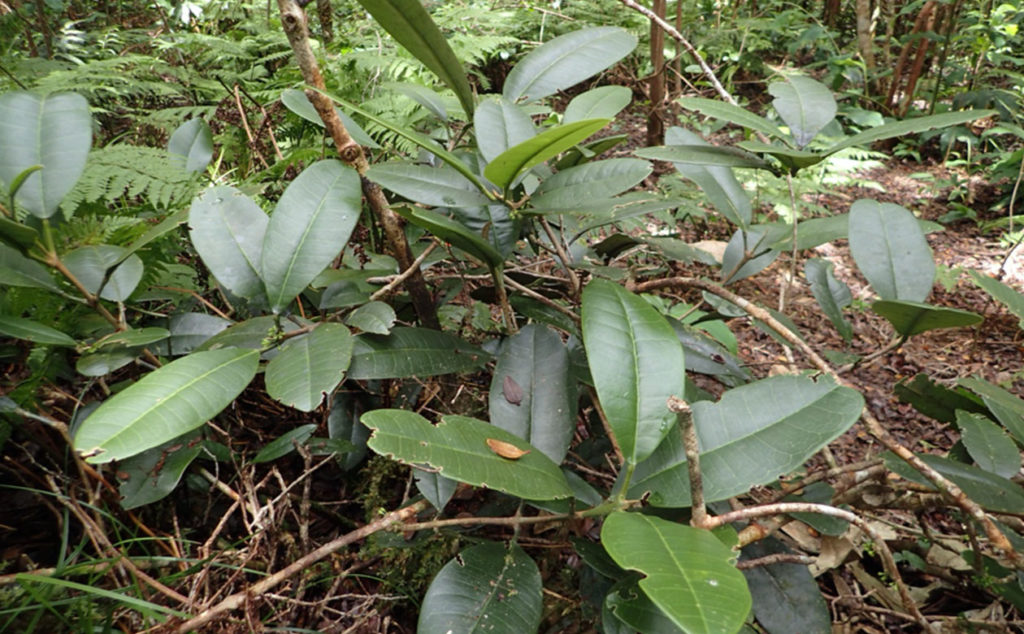Melicope nealae (Rutaceae or orange family) was considered possibly extinct and was only known from two previous observations on the floristically diverse island of Kauai, Hawaiian Islands. This extremely rare tree species was originally discovered in 1909 around Kauai’s Kaholuamanu region, and observed on a second occasion 60 years ago in the Kauai mesic forests of Kumuwela. It is with renewed hope for the survival of Melicope nealae that the NTBG Science staff reports the recent rediscovery of one lone tree in the Kokee forests of Kahuamaa, Kauai.

Over the past few decades, the NTBG Science Department has facilitated the rediscovery of four other species of Melicope with funding assistance from federal, state, and private sources. With this support, we have been successful in making conservation collections to perpetuate their unique evolutionary history and reintroduce them into restoration sites. In partnership with others, NTBG has also discovered and taxonomically described four additional species new to science from the Hawaiian Islands and French Polynesia.
Species of Melicope range from Malagasy and Indo-Himalayan regions, through Southeast Asia, Australasia, and across the Pacific Islands. The Hawaiian Islands is one of the centers of diversity for Melicope with 54 species. NTBG has teamed up with researches from the University of Gottingen, Germany, and the Smithsonian Institution to study the phylogeny and biogeography of Melicope, in addition to a recently submitted paper with researchers from the Heinrich-Heine-University, Duesseldorf, Germany, looking at molecular compounds in the leaves of the Kauai endemic Melicope barbigera. Culturally, species of Melicope are significant to the Hawaiians who gave them numerous names, including: alani kuahiwi, kukaemoa, piloula, and mokihana. In fact, the traditional lei (garland) of Kauai, mokihana, is a species of Melicope prized for its intriguing anise-like fragrance and beauty.

Last week, NTBG Science staff partnered with the Hawaii State Plant Extinction Prevention Program (PEPP) to facilitate an air-layer on one of the branches of the newly rediscovered Melicope nealae. Many of Kauai’s rarest trees have been successfully propagated and cultivated by this technique. We are grateful for the ongoing support from many of you to continue this research during such difficult environmental times and to be given the opportunity to bring back this species from the brink of extinction.
Image texts, photos: Ken Wood
Mesic forest habitat, northwest Kauai, Hawaiian Islands.
Melicope nealae, recently rediscovered on Kauai, Hawaiian Islands.